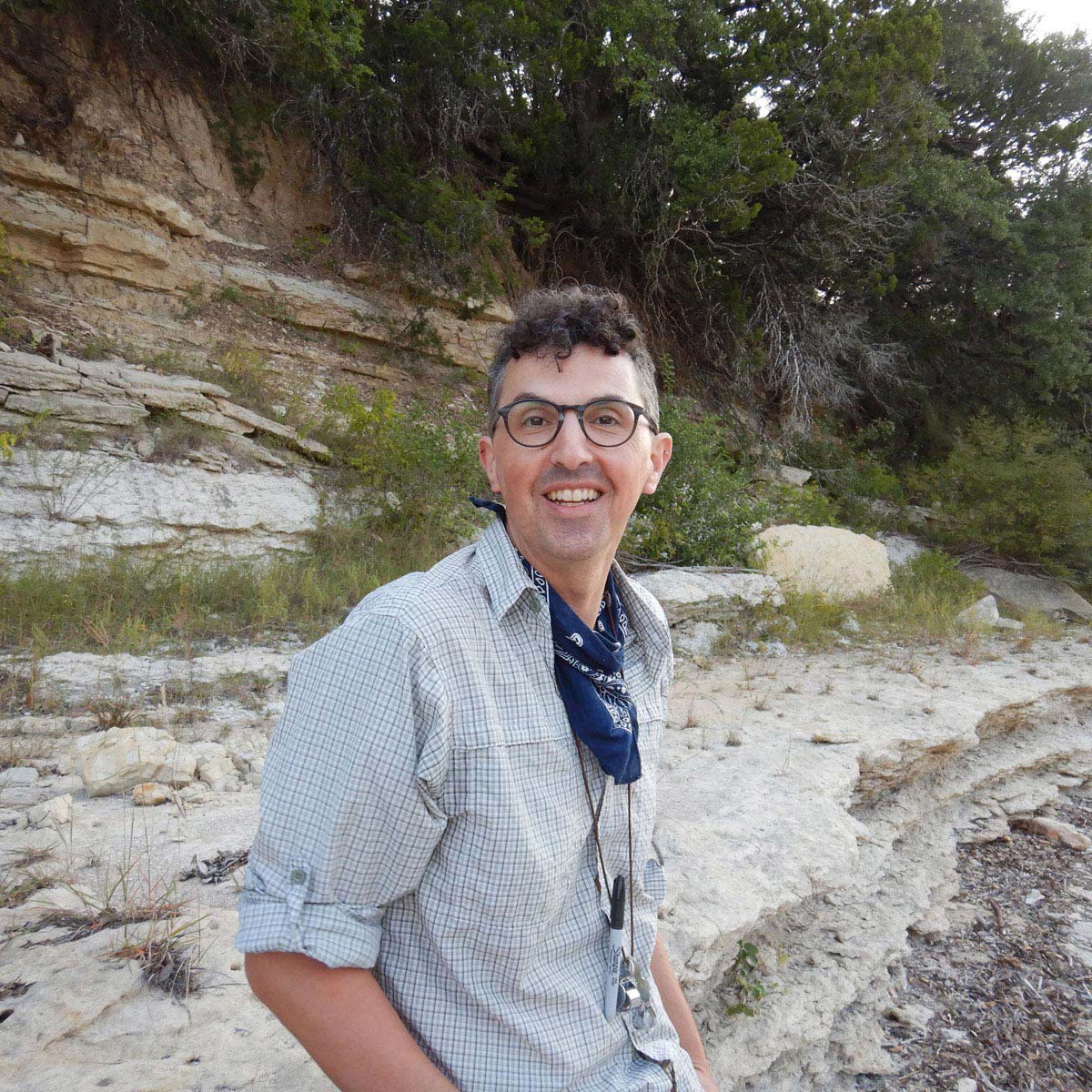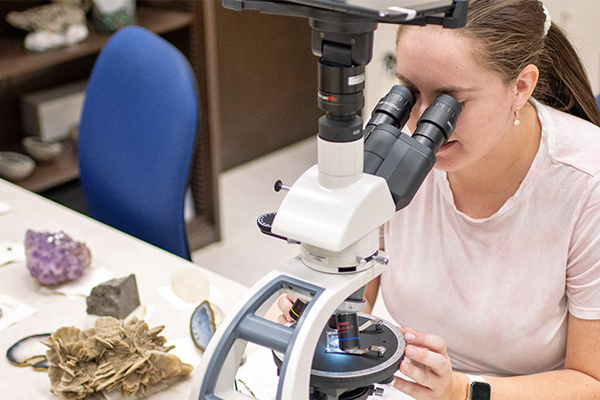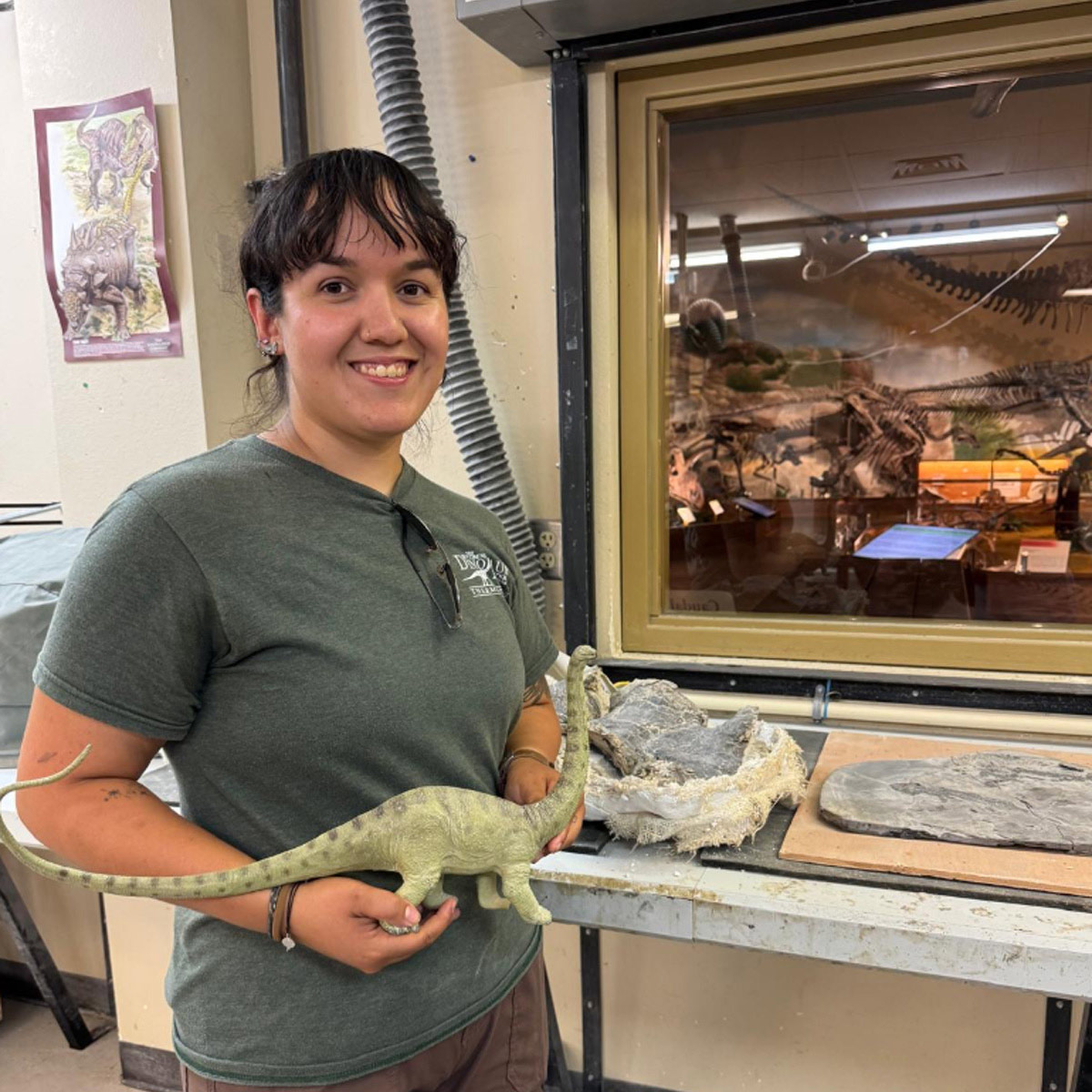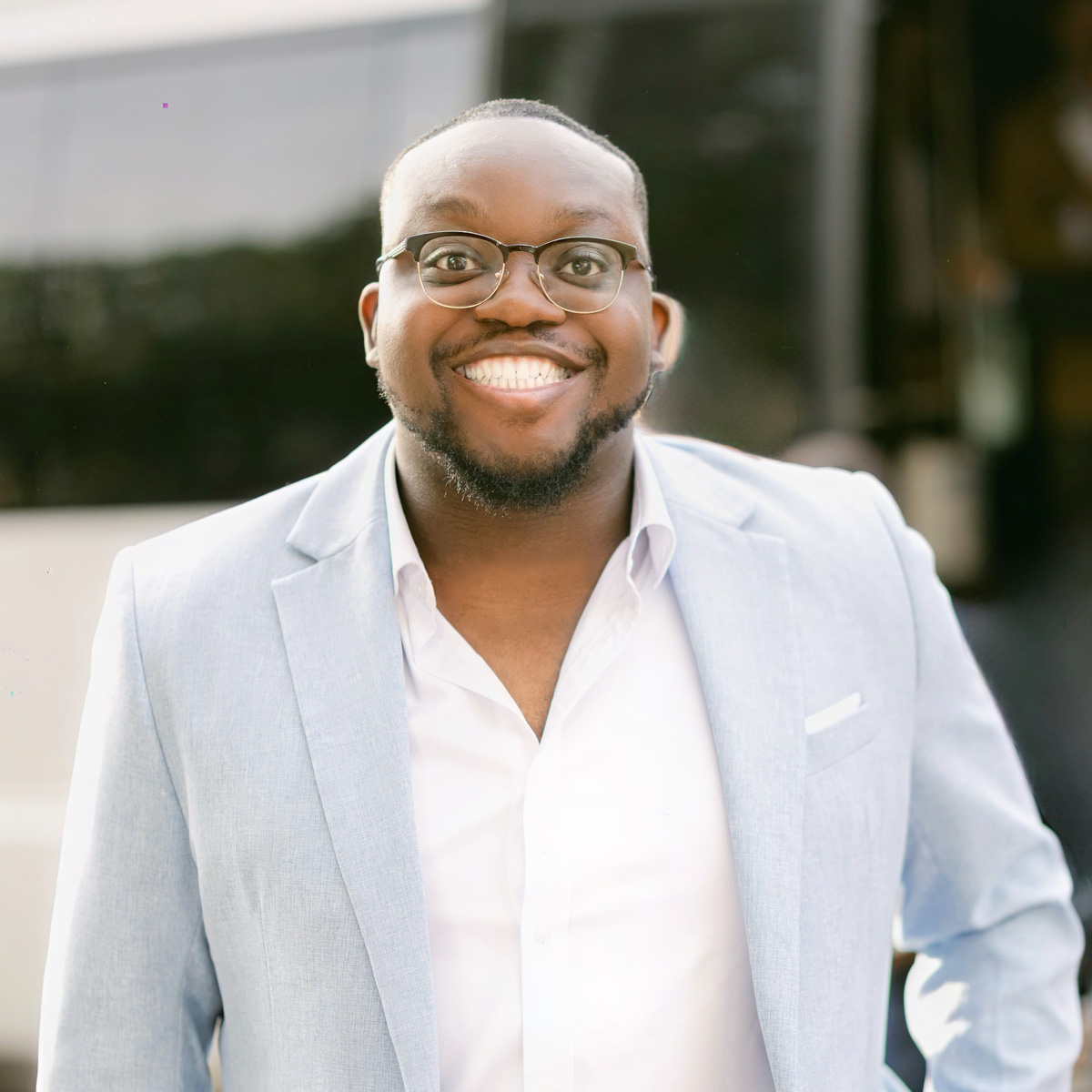Posted on June 14, 2022 by College of Sciences

Alexis Godet, Ph.D., Department of Earth and Planetary Sciences
What did your journey to UTSA look like and are you fixed-term track or tenure track?
My journey to UTSA is a journey through four countries: France, where I was born and where I graduated with my master degree; Switzerland, where I gained my doctoral degree; the United-Kingdom where I worked as a geologist for a consultant company for the oil and gas industry, before I moved back to Switzerland for a postdoctoral fellowship; and finally the USA where I moved in Summer of 2013 to join UTSA and work as an Assistant Professor in the Department of Geological Sciences that was renamed the Department of Earth and Planetary Sciences in Fall 2021. I was promoted to the rank of Associate Professor with tenure in September 2019.
What do you enjoy most about your area of study?
We, geologists, can read the Earth's history in rocks. We can interpret ancient landscapes and we can trace how living organisms evolved by studying rocks. Of course, it is not that simple, but I am still fascinated and baffled by all we can learn about our planet by looking at rocks. I often tell students that looking at rocks is like reading a book - but a book with missing pages. Geologists are here to write the missing pages.
What are some of the most notable research projects that you've been involved in?
In Summer 2019 I received a CAREER award from the National Science Foundation (NSF), which is one of the most prestigious awards from NSF. The project will last for five years, for a total grant of about half a million dollars. My students and I are studying how climate change affected the ancient equivalent of coral reef systems about 120 million years ago.
So far, I supported four UTSA master students; we performed field work in two regions of France and explored how two coeval, yet different, reef systems evolved during a major paleoenvironmental crisis that culminated in the development of oceanic anoxia, worldwide. With its enhanced greenhouse conditions (ca. 2,000 ppmv CO2 versus 390 ppmv in modern atmosphere), the Cretaceous is a perfect ancient analog for what our future could be if human activities keep on releasing greenhouse gases into the atmosphere. My research and that of my students has the potential to predict how reef systems could survive, adapt, or die if modern greenhouse conditions keep on increasing.
What is your proudest moment with the COS?
Fostering a sense of belonging to a community of learners is paramount. I am extremely proud of my leadership in organizing two events that gathered faculty and students from my department. In Fall 2020 and in collaboration with the Department of Environmental Sciences and Ecology (now part of the Department of Integrative Biology), I spearheaded the organization of a day-long "Earth Symposium" where faculty and students from our two departments showcased their research.
The following year in Fall 2021, I took the lead in organizing another social event for students and faculty in my department. It was very important to me to welcome our students back to campus after several semesters of online teaching. It was wonderful to interact with them in a very casual setting in the aftermath of the COVID pandemic.
What do you enjoy most about your job?
I certainly enjoy the research side of my work the most, especially when it comes to working with students either in the field or in the lab. It is fascinating to see students grow as researchers through their own discoveries, as they make their way through their academic preparation. It helps me grow as a mentor and as a faculty member, as their questions often push me out of my comfort zone and stimulate my own research. In fact, my research group can be seen as an environment with various levels of interactions between students, their peers and near-peers, alumni from the group, and myself, thus creating a series of positive feedback loops that foster the growth of each individual in this learning ecosystem.
How would you spend your ideal Saturday?
My ideal Saturday would start early with a hot yoga practice followed by a hike or a bike ride. I would spend the afternoon gardening, reading on the front porch of my house south of downtown, or baking!
What are your book recommendations?
For leisure I read in my first language - French. My first recommendations are French books: Mur Mditerrane by Louis-Philippe Dalembert that tells the migration of three African women from their country until they are rescued by a NGO in the Mediterranean Sea, and C'tait Merkel by Marion Van Renterghem that explains how Angela Merkel, born in eastern Germany, became one of the longest-lasting German chancellor and probably the most powerful woman in the world. I am also currently reading the Autobiography of Malcom X, I think it is important to learn how a society was built and evolved to understand its strengths and weaknesses.

Explore the EPS Department!
With research centers such as the Center for Advanced Measurement in Extreme Environments and the Institute for Water Research, Sustainability and Policy, students have access to diverse research opportunities to foster their education.
Recent EPS Spotlights
View More Spotlights



